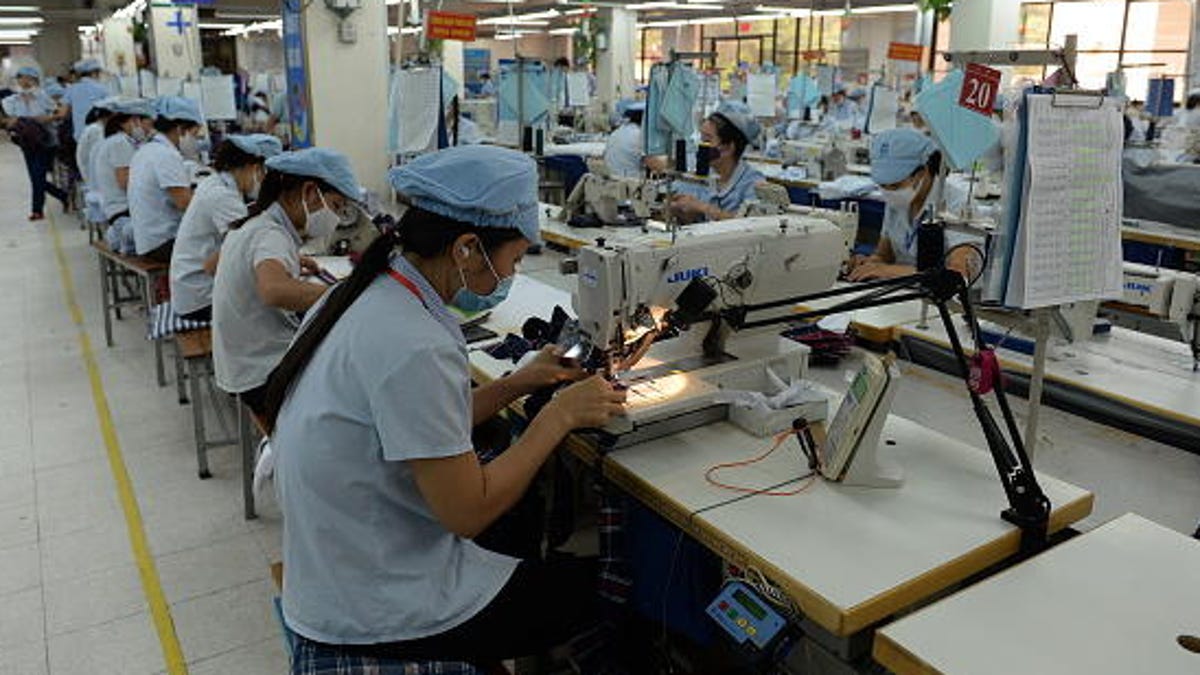Robots will lead to more human trafficking, slavery, report says
Tens of millions of workers could lose their jobs to automation, particularly in southeast Asia, over the next 20 years.

Garment workers among those most at risk of losing their jobs, finding few low-skill alternatives and facing exploitation, according to the Verisk Maplecroft report.
The rise of robot manufacturing will dramatically alter the labor market in southeast Asia and result in a spike in human trafficking, slavery and other labor abuses, according to a report released Thursday.
The "Human Rights Outlook 2018" report from corporate risk-analysis consultancy Verisk Maplecroft plays out the scenarios of a United Nations prediction that 56 percent of workers in Cambodia, Indonesia, Thailand, the Philippines and Vietnam will lose their jobs to automated alternatives over the next two decades.
Those countries are specifically at risk for increased slavery and human trafficking due to the "dependence of the workforce on low-skilled jobs and existing high levels of labor rights violations," the report said.
"Displaced workers without the skills to adapt or the cushion of social security will have to compete for a diminishing supply of low-paid, low-skilled work in what will likely be an increasingly exploitative environment," Alexandra Channer, the consultancy's head of human rights, said in a statement.
"Without concrete measures from governments to adapt and educate future generations to function alongside machines, it could be a race to the bottom for many workers."
The report highlights Vietnam as the country at greatest risk among the five countries included in the research, with 36 million workers expected to lose their jobs to automation. In addition, the report cites the garment, textile and footwear industry as being particularly at risk from automation.

